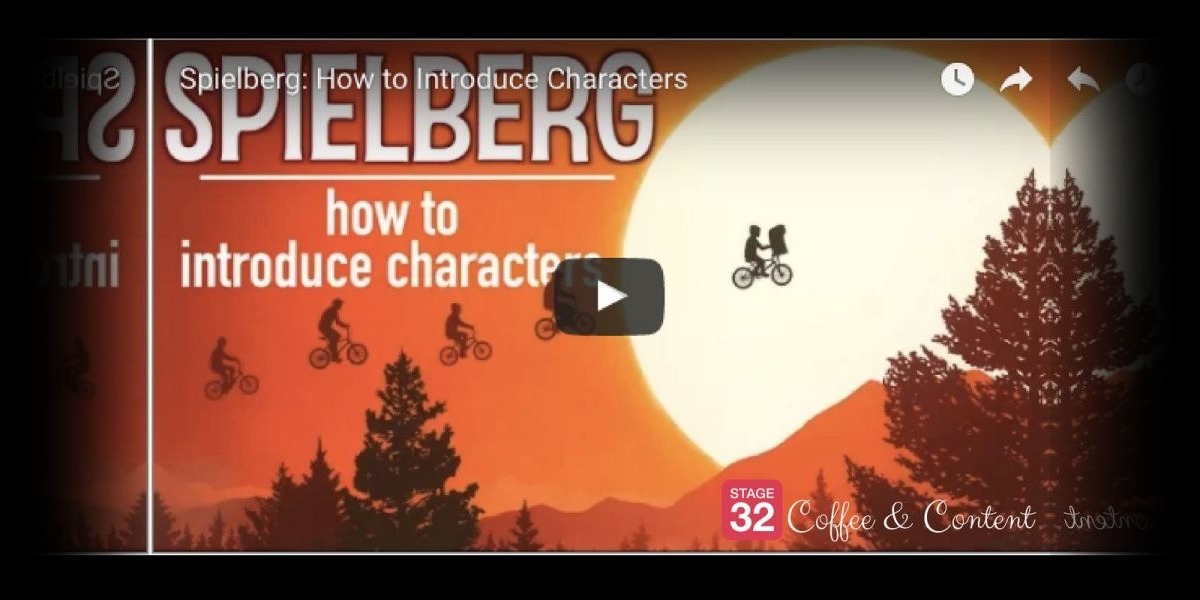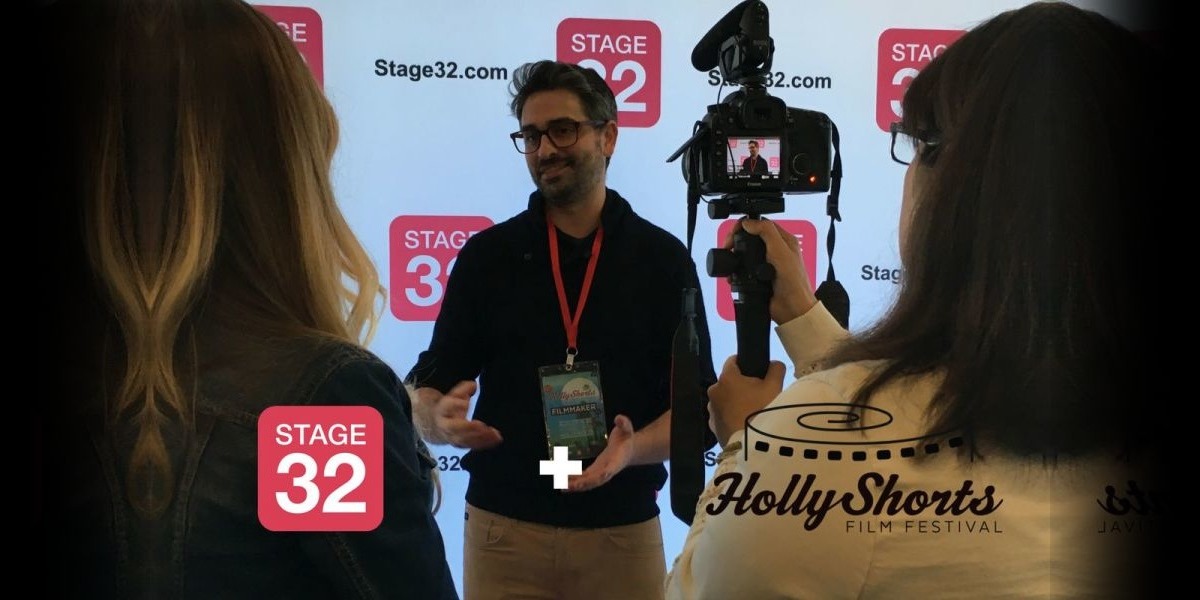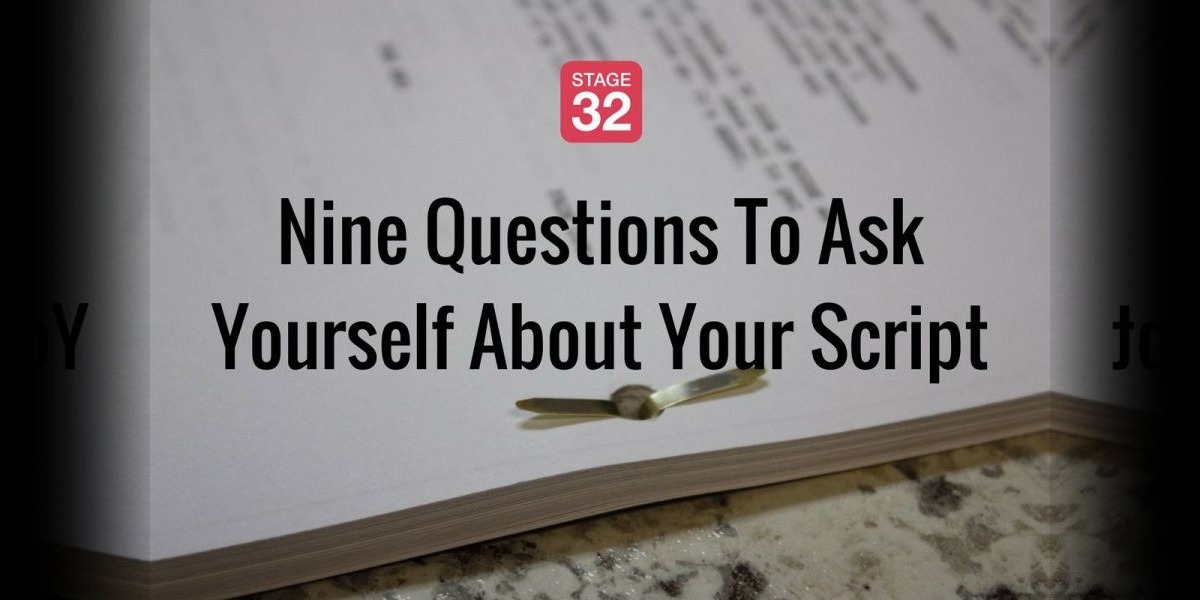Nine Questions To Ask Yourself About Your Script
As a producer/director, I'm asked to read scripts all the time. What I mostly encounter are scripts that aren't ready for production. No even close. How do you know if your script is production ready? Here are nine questions to ask yourself about your script:

1: Does your screenplay use a Three-Act Structure?
The Three-Act Structure is a classic hero's journey that divides your story into three parts (or Acts); Setup, Confrontation and the Resolution. I'm recommending this approach, because an overwhelming percentage of successful films over the last 100 years have used it. I like it. It will help you write a solid story that will make a great movie.
Are there exceptions? Of course; GIRL WITH THE DRAGON TATTOO (2009 dir. David Fincher), HIROSHIMA, MON AMOUR (1959 dir. Alain Resnais) and MULHOLLAND DR. (2001 dir. David Lynch) to name a few, but for now, use the Three-Act Structure. It works.
This blog is not intended to be a 'how to.' Check out available material on crafting your story to benefit from the Three-Act Structure and follow it.
When I wrote the screenplay for 3 OF A KIND, I used the Three-Act Structure to my advantage. It helped me write an engaging story that actually has a beginning, middle and end. The resulting script worked and so did the movie.

2: Are you TELLING instead of SHOWING?
SHOWING us what is happening is much better, because it's visual. Remember, you are writing a script that will eventually become a movie. Here's an example of what I mean.
TELLING:
Michael spots Sarah dancing and having fun with a lot of people at a house party. She smiles and motions him to come over.
SHOWING:
A steady stream of high school couples push by Michael as he makes his way through a darkly lit hallway carrying two beers. He's suddenly bumped and almost loses his grip on the cups when he spots a dancing Sarah. From across the crowded living room she smiles and motions him to come over.
SHOWING allows the reader to imagine the progression of shots. Can you see this scene in your mind now? SHOW instead of TELL.
3: Is your dialog natural?
'On the nose' dialog is boring. "Hello, Sarah. Wow, you sure do dance well. Isn't this a fun party?" Don't write obvious dialog. It doesn't work.
In fact, only use dialog if you absolutely have to. Ask yourself if you can write a scene visually, using natural dialog sparingly as a last resort.

4: Are you revealing characters strategically in your scenes?
An example of what not to do:
Five guys are sitting around a poker table. One player wins the hand. The four losers throw their hands down as the winner moves the pile of chips towards himself.
An example of strategically revealing characters:
A pair of spectacled nervous eyes look left. A sweaty, pockmarked face meets his gaze and quickly looks down. A steely-eyed player stares from across the table. The pockmarked face guy plops down three nines and two fives. Another player with elaborate forearm tattoos throws his cards down and abruptly gets up. Dressed like a mortician, the reserved remaining player does the same. Pockmarked face guy is wearing a hint of a smile as he moves the pile of chips towards himself.
Recognize the difference? Don't show everything at once. Strategically reveal characters to keep your reader engaged.
5: Are you starting your scenes at the beginning?
Don't. Come into a scene that is already underway if you can. This technique works. The audience feels they are 'catching up' and as a result, pays closer attention to what is going on, because clearly there was something that happened before.
An example of this comes from the very first scene from THE WIZARD OF OZ (1939):
MS -- Dorothy stoops down to Toto and speaks to him --
DOROTHY
She isn't coming yet, Toto. Did she hurt
you? She tried to, didn't she? Come on --
we'll go tell Uncle Henry and Auntie Em.
Come on, Toto.
She then runs down road -- Toto following --
LS -- Farm yard -- Dorothy comes forward thru gate - and runs to
Aunt Em and Uncle Henry working at the Incubator -
You see? We're clearly not starting at the beginning of the scene. In fact, we're half way through it. Now we'll have to figure out what happened previously as the rest of the scene unfolds. We are engaged!

6: Are your scenes too long?
You can have one to three 'set pieces' (longer scenes) in your script if there is a good reason for it, but generally keep your scenes lean and to the point.
7: Have you had your script read out loud?
It doesn't count if you read it out loud to yourself. Well it kinda does, but not really. Have a private or public reading instead. You will be surprised how helpful it is to hear your script read this way. Why? Because you'll immediately recognize what dialog works and doesn't work. Invaluable.
Don't know any actors? Maybe a local theater troupe would be willing to help out if you contact them. In fact, they would more than likely jump at the chance.
If you decide to have a public reading - good for you. You never know who may be in your audience (i.e. a potential investor).

8: Have you sent your screenplay to friends and colleagues?
They will give you feedback from which you can benefit right now. Be patient and open to input. Now is the time to adjust and rewrite before someone who can turn your script into a movie reads it.
I sent my 3 OF A KIND script to friends and colleagues and received valuable feedback that allowed me to enhance the script immeasurably. Do it. You'll thank me later.
9: Is your script a page turner?
It must grab the reader from half way through the first page - not letting go until the end. Seriously. If it doesn't, work on your script until it does.
Take my advice and follow these suggestions now, so you stack the cards in your favor. Remember, your script is the foundation for the movie. Would you build a skyscraper on a bog? Of course not. Can someone make a great movie from a weak script? I've heard too many filmmakers say, "Oh, the film will be great! I'll work out all the script kinks on the set." Or, "Don't worry. I'll make it work in the edit".
That approach never works. Never.

About Gregory Green
Greg Green is the award-winning writer, producer and director of the psychological thriller, 3 OF A KIND - now on Amazon Prime. He won BEST PICTURE and BEST DIRECTOR at the WorldFest Houston International Film Festival for this picture.
His company Greg Green Films develops and produces feature films for a national and international audience. Greg loves living in Boise, Idaho - far away from the madding crowd! Born in Oshkosh, WI, Greg started making films at the age of nine and hasn't stopped since. He was accepted to the Warner Bros. National Film Workshop, and received his film degree from the University of Iowa. He has worked on many feature films such as THIEF (starring James Caan), WHO AM I THIS TIME (starring Susan Sarandon and Christopher Walken) CHAPTER PERFECT (starring Wilford Brimley) and television shows such as 60 MINUTES, 20/20 and CBS REPORTS. He also worked on many TV movies and a network TV series, CHICAGO STORY (starring Craig T. Nelson).
In addition to his awards for 3 OF A KIND, Greg has earned four regional Emmy Awards, a national Clio Award and a national Pro Max Award.
Like this blog post? Please share it on social media (Facebook, Twitter, LinkedIn, email etc) by using social media buttons at the top of the blog. Or post to your personal blog and anywhere else you feel appropriate. Thank you.
As always, we welcome thoughts and remarks on ANY of the content above in the Comments section below...
| Coffee & Content - Launching a Career With Short Films & Spielberg's Memorable Characters |
| LA Premiere of the Stage 32 Short Film Program |
Search Stage 32 Blog
There are now 4035 blog posts for you to enjoy. Search them all by tags below.
Acting, Advice, Cinematography, Coffee & Content, Composing, Contests, Distribution, Featured, Filmmaking, Financing, Inspirational, Networking, Producing, Screenwriting, Success Stories, Tips, Trending,Relevant Tags
Recommended Articles
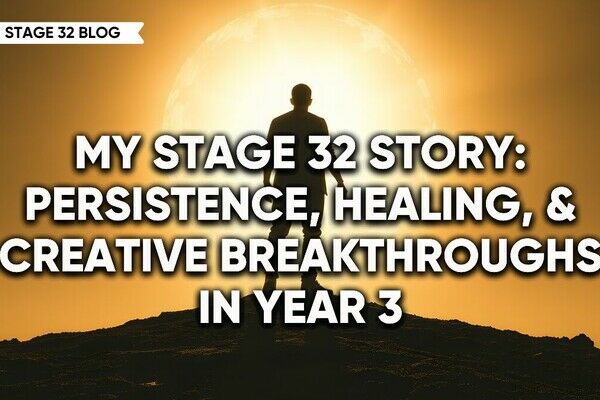
My Stage 32 Story: Persistence, Healing, & Creative Breakthroughs in Year 3

Coffee & Content: The Genius of Weapons and How to Know When Your Script Is Ready
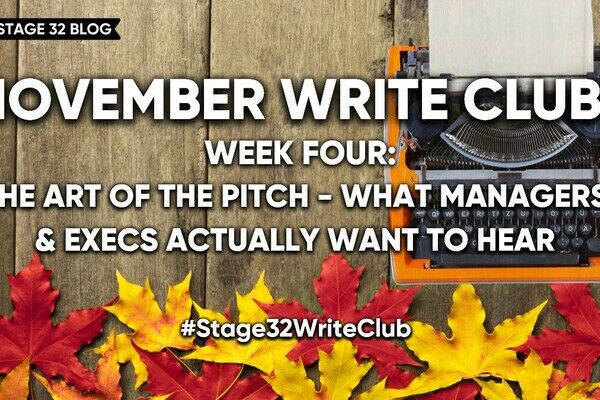
November Write Club Week 4: The Art of the Pitch- What Managers & Execs Actually Want to Hear

Green Lights and Grey Areas: Expanding Creative Collaboration in Publishing

Coffee & Content: Opening Doors & Taking Control of Your Creative Path

Wearing Many Hats As A Creative

Want Success in the Entertainment Industry? Start Writing Your Own Narrative

Insider Intel: A-listers Are Dead. Long Live A-listers.

Don't Let the Momentum of November Write Club Die: How to Stay Active Into 2026 & Beyond!



